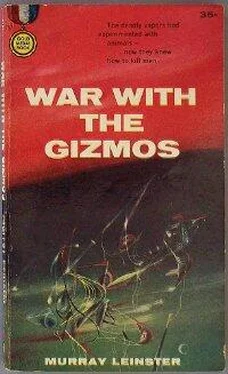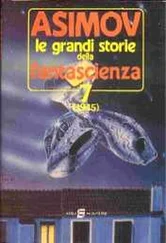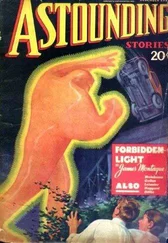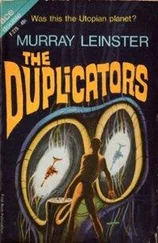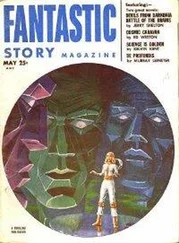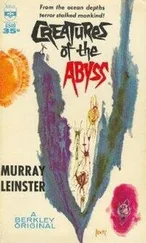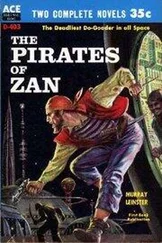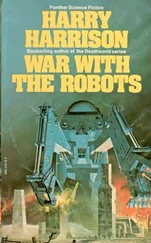Murray Leinster - War with the Gizmos
Здесь есть возможность читать онлайн «Murray Leinster - War with the Gizmos» весь текст электронной книги совершенно бесплатно (целиком полную версию без сокращений). В некоторых случаях можно слушать аудио, скачать через торрент в формате fb2 и присутствует краткое содержание. Год выпуска: 1958, Издательство: Fawcett Gold Medal, Жанр: Фантастика и фэнтези, на английском языке. Описание произведения, (предисловие) а так же отзывы посетителей доступны на портале библиотеки ЛибКат.
- Название:War with the Gizmos
- Автор:
- Издательство:Fawcett Gold Medal
- Жанр:
- Год:1958
- ISBN:нет данных
- Рейтинг книги:5 / 5. Голосов: 1
-
Избранное:Добавить в избранное
- Отзывы:
-
Ваша оценка:
- 100
- 1
- 2
- 3
- 4
- 5
War with the Gizmos: краткое содержание, описание и аннотация
Предлагаем к чтению аннотацию, описание, краткое содержание или предисловие (зависит от того, что написал сам автор книги «War with the Gizmos»). Если вы не нашли необходимую информацию о книге — напишите в комментариях, мы постараемся отыскать её.
War with the Gizmos — читать онлайн бесплатно полную книгу (весь текст) целиком
Ниже представлен текст книги, разбитый по страницам. Система сохранения места последней прочитанной страницы, позволяет с удобством читать онлайн бесплатно книгу «War with the Gizmos», без необходимости каждый раз заново искать на чём Вы остановились. Поставьте закладку, и сможете в любой момент перейти на страницу, на которой закончили чтение.
Интервал:
Закладка:
So much was undeniable from the beginning. And this was no observation by a mere human, who might delude himself. This was a report from complex electronic devices. It was images formed on phosphors coated on radar screen tubes, excited by accelerated electrons whose pattern of impact was governed by echoes from the original of the image. Phosphors do not imagine. Electrons are not affected by panic. As a radar image it was a faithful report—in its own terms, without interpretation—of something which actually was.
Not only airport radars revealed it; at air force installations the image appeared. The weather bureau cloud-pattern radar showed it, from a different angle and in different perspective, but absolutely the same thing. And nothing like it could exist. A bomber fleet would appear as specks; this was like a cloud or a solid object of preposterous size—yet it could not be solid. It was too big. It could not be a cloud because it had movement of its own. It did not float with the wind. Its motion was affected by the wind, but was still its own.
Pilots went running to their planes. There were thunderous roarings down runways and planes lifted and snarled away into the night. And the radar report was not one to call for a mere investigatory scramble. There was an emergency alert at all fields within striking distance. Half the available striking force of nearby airfields went aloft and toward the deliberately moving incredibly huge source of the alarming radar reflections.
They found it, and they found nothing. Their own radars pinpointed its borders. They fired rockets into it. Ultimately they plunged into it, backwards and forwards and sidewise. There was no nucleus, no solid object, no perceptible thing to cause the phenomenon. Some pilots expressed the opinion that when in the strange reflecting object their jet motors operated a little differently; some thought better, some thought worse. Some pilots returned to their bases to be replaced by others with full fuel tanks. The radar-perceived object was too huge to be affected by planes flying through it. It moved on toward Chicago. Once a pilot reported that the jet flame of other planes than his own seemed to be longer than usual. But he was not sure of that, either. It is not likely that the observation was accurate. Gizmos flying in swarms needed space between individuals, just as birds in a flock need it. Radar would not pick up millions of small things separately, but report the mass. This night, radar did.
And at twenty past two o’clock in the morning, the Gizmo swarm reached Chicago. Sirens throughout the city had roused the citizens. Radio and television stations which had gone off the air went back on to give due notice of the coming of the inexplicable thing, with encouraging statements that nothing was actually expected to happen, but with warnings that traffic jams must be avoided. Citizens of Chicago were told to stay home. They would be told everything that happened; they would have the best advice on measures to be taken for their own protection, if protection was needed.
The Gizmo swarm descended upon the stockyards.
Even roaring jet planes, circling desperately in the invisible cloud, had their thunder drowned out by the noise from the penned beasts when the Gizmos arrived. Confined in pens, the doomed cattle bellowed as whinings descended upon them. Their composite cry of despair carried all over the city. There was no one in Chicago, wakened by sirens and terrified by broadcast warnings, who did not hear it. A watchman in the stockyards used the telephone in a glass-enclosed booth from which he viewed the cattle pens. He told of whinings that rose to a shrill keening. He babbled of the beasts below him fighting madly, climbing upon each other, flinging their horns about, uttering cries no creature had ever uttered.
Suddenly his voice broke off and there were sounds of things being smashed. The line went dead.
When morning came the stockyards were filled with murdered animals. Cattle, sheep—the sheep had fought terribly—and swine were all dead. A few human beings died with them, but less than twenty—guards and watchmen and the like. It is on record, however, that there were workmen making repairs on the inside of a cold-storage room, in one of the larger packing houses. They worked comfortably through the whole episode, not having heard the sirens or the broadcasts nor even the ghastly outcry of the dying animals. When their work was finished they came out to an astonishing stillness. Day was breaking. They looked upon acres of massacred hoofed animals. They met masked police and firemen and doctors from the hospitals, gingerly examining the scene.
This produced the greatest series of separate insanities in the history of human reactions. It was past all doubt that something existed which nobody had guessed at—invisible, lethal and purposeful. There was a body of vociferous persons who demanded that war be immediately declared upon Russia, because the Russians must have done it. There was a smaller, louder group which in a strangely exultant fashion insisted that flying saucers were now proven, that the cattle in Chicago had been killed by invaders from space, and that the air force pilots who denied seeing flying saucers on the way to Chicago should be court-martialed. Of course less indignant but firmly convinced individuals maintained that the cattle had been killed by spores of a disease which were carried upon a wind current. The fact that the radar cloud moved against the wind did not shake their conviction. They considered that the observations of the wind and its velocity must have been wrong.
The newspapers ran out of space for large-type headlines and had more or less to confine themselves to printing the facts. It was quaint, though, that a small news story from Roanoke, Virginia, was crowded out of type altogether. Even the later editions had no room for it. They had to report public reaction in Chicago, and related happenings.
That reaction was remarkable. One of the most astonishing things about the human brain is its ability to hold firmly to two mutually contradictory beliefs at the same time. The death of Serenity and the astonishing number of people who died in their sleep on Tuesday night had been followed by the murder of refugee animals in a Minnesota cornfield and an astronomical increase in traffic deaths on Wednesday, and the Chicago cattle-massacre in the small hours of Thursday morning. The existence of a lower-animal plague—an epizootic—which could also kill men seemed to be established. But also something which in the Chicago manifestation was definitely not a disease was no less established. The similarity between the Chicago affair and the murder of animals in Minnesota was complete, so far as the manner of death was concerned. That motorists were suffocated obviously fitted in. It had been noted, by the way, that the victims of car accidents had rarely been traveling at high speed when the accidents took place. They were driving at a leisurely pace—often under thirty miles an hour—with the car windows open. It would seem that anybody should have concluded that there was only one inimical agency at work.
Maybe some people did, but they were in an unheard minority. Public opinion believed with passionate unanimity in an unknown disease which killed men and animals indiscriminately, and also in something else which might be Russian—or from outer space—but was alive and deadly and killed animals and men. Death was assumed to be abroad in the land, at once a disease to be avoided and an entity to be fought. So small towns barricaded themselves behind barriers, and enacted strict quarantine laws which had very little sense behind them, and demanded the stationing of antiaircraft batteries at every crossroad post office. Larger towns took even more stringent measures. Guided missile defenses were especially in demand. If there was anybody, anywhere, who pointed out that the cattle in Chicago did not die of disease, he was denounced for his denial of the general belief that they had. But anyone who observed that if the cattle had died of plague antiaircraft batteries would be useless was regarded as subversive.
Читать дальшеИнтервал:
Закладка:
Похожие книги на «War with the Gizmos»
Представляем Вашему вниманию похожие книги на «War with the Gizmos» списком для выбора. Мы отобрали схожую по названию и смыслу литературу в надежде предоставить читателям больше вариантов отыскать новые, интересные, ещё непрочитанные произведения.
Обсуждение, отзывы о книге «War with the Gizmos» и просто собственные мнения читателей. Оставьте ваши комментарии, напишите, что Вы думаете о произведении, его смысле или главных героях. Укажите что конкретно понравилось, а что нет, и почему Вы так считаете.
